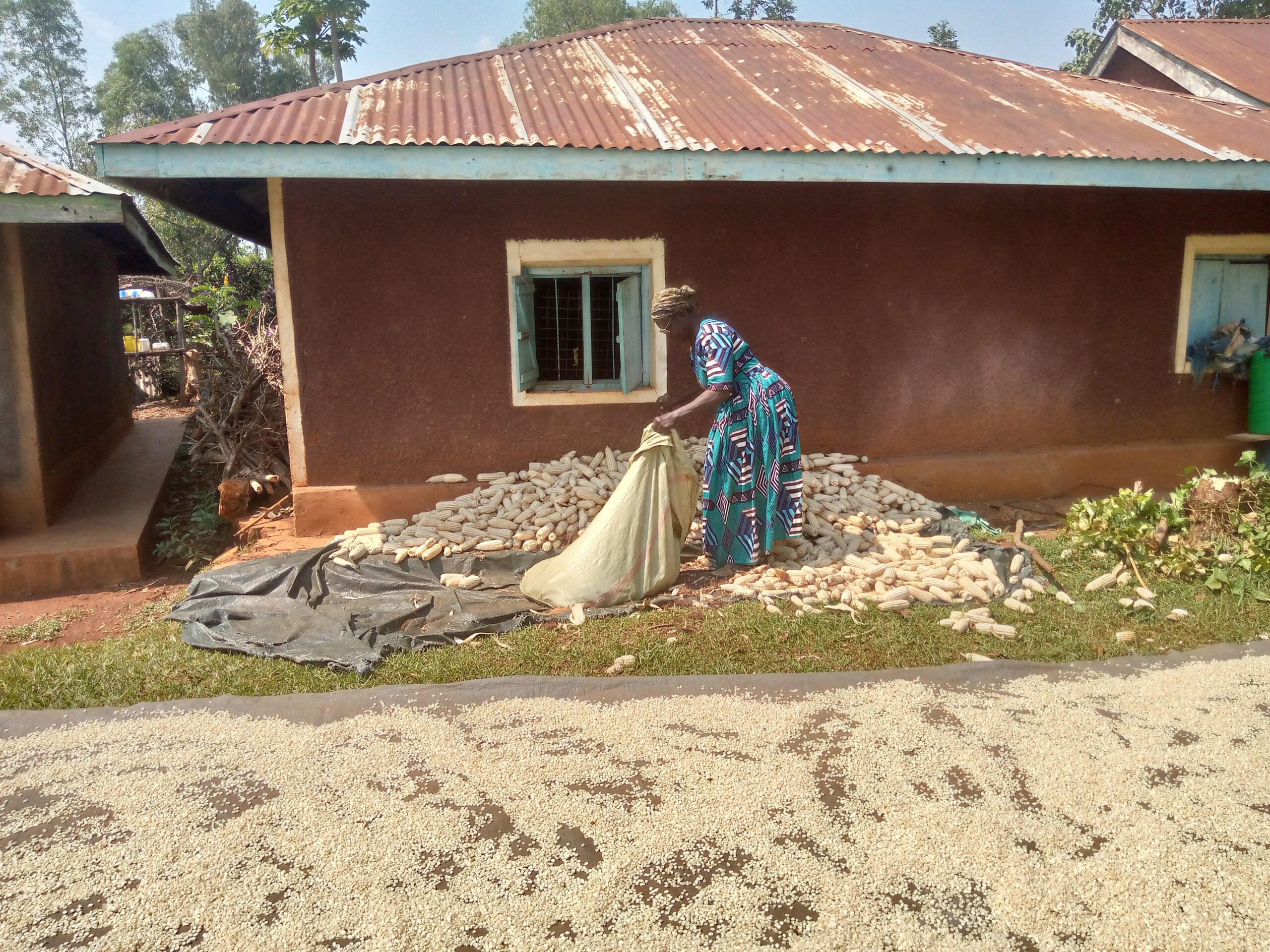“My name is Joyce John Wanyonyi. I was born in the year 1956 in Yiro village, Ugunja Siaya County.
I was born in a polygamous family. My mother was the 1st wife and she died soon after I was born. I was then raised by my maternal grandmother until I became of age and joined my elder sisters back in our home.

I was enrolled in primary school where I studied up to Std 8. I performed well in the Kenya Certificate of Primary Education and was called to a girl’s secondary school within Siaya County but didn’t join due to lack of school fees.
I then got married in Alego, Nyalgunga in the year 1977 as a second wife and settled in this community. I worked hard together with my husband and co-wife in the farms, and we produced a lot of food and sold surplus in the local market. I never had children of my own.
In the year 2000 my husband died and I later joined Nyalwocodep in 2005. It has been a long and steady journey with Nyalwocodep. Today I am the chairlady of Nyalwocodep group. I have learnt many things through trainings received from ADRA such as smart agriculture, poultry keeping, human rights, safeguarding, leadership and management trainings among other things. I also received gifts from ADRA like sheep which I reared and through it got several other sheep which I have since sold and bought a cow from the proceeds. The cow has a calf now and I am milking it. I also got chicken from ADRA, through which I have had several chicks and hens though periodically due to diseases I end up losing some but I keep on picking up again. I received fam tools, certified seeds and fertilizers and have been getting a good harvest every time I plant quality seeds and fertilizers.
The VSLA concept introduced by ADRA Kenya has been my greatest game changer and provided me with financial freedom. I have been saving faithfully through this and taking loans to support my daily needs and other projects at home. At the end of the year during pay out I always leave with over Kshs.10,000 as my take home. In the last year 2024, I took home Kshs 11,800 that was my shares contributions, welfare savings and interest earned. This money is what I use for farming which is my main source of income. Out of this I use about Kshs.3,000 to till and prepare my land twice before planting. I use roughly Kshs.3,000 to purchase certified seeds and fertilizers. I use another Kshs.1,800 for planting by engaging about 6 people at a rate of 300 per person for one day. Kshs.2,000 for weeding and another Kshs.1,200 for harvesting after harvesting I do most of the shelling, drying and storing work alone with the help of friends, neighbors and family.
I can proudly say now as the group chairlady that through the many trainings received from ADRA, our group record keeping has improved considerably and accountability levels is very high and transparent. The group is working together to reinvent itself and achieve it’s goal.
We are so happy and grateful to the donor and ADRA Australia for their generous contribution and constructing a school for our children. This is a great project for Nyalwocodep members, and we are going to guard it jealously and ensure it succeeds and benefit the entire community and beyond by providing quality education to our children.
I am forever grateful to ADRA for the support they have given to me at personal level and also through Nyalwocodep group. May God continue to bless them and may they not stop holding our hands to stand and stay strong.”

